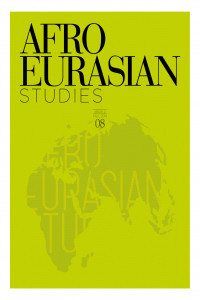Education and Consumption Differentials: Evidence from an Emerging Country
Education and Consumption Differentials: Evidence from an Emerging Country
___
- Card D. (1999) “The casual effect of education on earnings.” In: Handbook of Labour Economics, O.Ashenfelter and D.Card (eds.), Amsterdam: North Holland
- Cohn, E., and J.T. Addison. (1998), “The economic returns to lifelong learning.” Education Economics, vol. 6, no. 3, pp. 253–308.
- Cutler, D., and L. Katz. (1992). “Rising inequality? Changes in the distribution of income and consumption in the 1980’s.” American Economic Review, vol. 82, no. 2, pp. 546–551.
- Deaton, A. and C. Paxson. (1994). “Intertemporal choice and inequality.” Journal of Political Economy, vol. 102, no. 3, pp. 437–467.
- Duygan, B. and N. Guner. (2006) “Income and consumption inequality in Turkey: What role does education play?” In: The Turkish Economy: The Real Economy, Corporate Governance and Reform and Stabilization Policy. S. Altuğ and A. Filiztekin (eds.), Chapter 2, Oxon, OX: Routledge Curzon Studies in Middle Eastern Economies.
- Krueger, D., and F. Perri. (2002). “Does income inequality lead to consumption inequality.” NBER Working Paper no. 9202.
- Mayer, S. and C. Jencks. (1993). “Recent trends in economic inequality in the United States: Income versus expenditures versus well-being.” In: Poverty and Prosperity in the USA in the Late Twentieth Century, Papadimitriou, D and E. Wol. (eds.), Chapter 27, New York, NY: St. Martin’s Press.
- Mincer, J. (1974). “Schooling, experience, and earnings”, New York, NY: National Bureau of Economic Research.
- Psacharopoulos, G. (1985). “Returns to education: A further international update and implications”, Journal of Human Resources, vol. 20, no.4, pp. 583-604.
- Psacharopoulos, G. (1994). “Returns to investment in education: A global update”, World Development, vol. 22, no.9, pp. 1325–1343.
- ISSN: 2147-110X
- Yayın Aralığı: Yıllık
- Başlangıç: 2012
- Yayıncı: Musiad (Independent Industrialists and Businessmen's Association)
Iran’s Changed Perception Concerning its Role in Afghanistan Following Soviet Disintegration
Determining Strategic R&D Sectors In Turkey: An Import-Based Approach
International Tourism and Economic Development in Turkey: A Vector Approach
Foreign Direct Investment and Private Sector External Financing: Do Credit Ratings Matter?
Education and Consumption Differentials: Evidence from an Emerging Country
